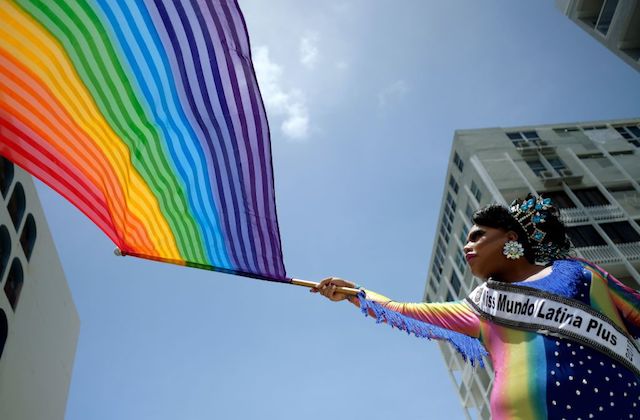As Puerto Rico continues to rebuild in the aftermath of 2017’s Hurricane Maria, the island’s LGBTQ+ community is organizing to combat a rise in conservatism and to restore meeting spaces that were forced out of business.
In an article published Sunday (July 7) in The New York Times, writers Alejandra Rosa and Patricia Mazzei penned “‘A Space Where You Could Be Free’: Puerto Rico’s LGBT Groups Rebuild After a Hurricane.” It opens with the impact of a San Juan bar shutting down following the storm:
rnt
But the bar—El Escondite, or the Hideaway—was not just a place for a strong screwdriver cocktail. It was also a mainstay for lesbian, gay, bisexual and transgender patrons wanting to share a good time or enjoy a drag show. For Roma Rodríguez, a 23-year-old transgender woman, and her friends, the bar’s closing last year meant the loss of one of the few hangouts in Puerto Rico’s capital where they felt safe being themselves.
t
[…]
t
Only a handful of establishments directly served an LGBT clientele before Hurricane Maria ravaged Puerto Rico in September 2017, splintering thousands of homes and leaving the island’s power grid in shambles. The economic hardship that followed the storm forced at least three well-known establishments in the San Juan area to close their doors, leaving even fewer places for regulars to socialize and feel connected to a larger community.
Now, LGBTQ+ entrepreneurs are opening new spaces, including bars, art spaces and performance venues. This is alongside other progress that has happened since Maria, including, The Times reports, a 2018 court ruling that allows people to change the gender on their birth certificates and the first trans pride day, which was held last week in San Juan. But even in the face of these positive actions, the community faces new legislative battles:
rnt
In early June, the Puerto Rican House of Representatives passed legislation to grant “reasonable accommodations” for government workers who did not want to serve people whose views might be in conflict with their religious beliefs. After a public relations campaign organized by advocacy organizations argued that it amounted to legalizing discrimination, the so-called religious liberty bill was shelved when Governor Ricardo A. Rosselló, who initially endorsed the legislation, withdrew his backing.
t
Even with Mr. Rosselló’s reversal, the fact that the bill had advanced at all—and that lawmakers could still reintroduce it—left many people worried about the future of gay rights on the island.
Since the storm, there has reportedly been a rise in suicide rates and mental health issues among LGBTQ+ Puerto Ricans, highlighting the necessity of establishing gathering places:
rnt
“Being poor and queer, I think, leads you to think, ‘How am I going to get out of this, if no one wants me?’” [Rodríguez] said.
t
At the core of efforts by Ms. Rodríguez and others to maintain spaces for LGBT Puerto Ricans is the belief that envisioning a better future starts with having somewhere to go.
t
“It feels special,” Ms. Rodríguez said, “to get to a place where they treat you as the human being that you are.”
Read the entire article here.
